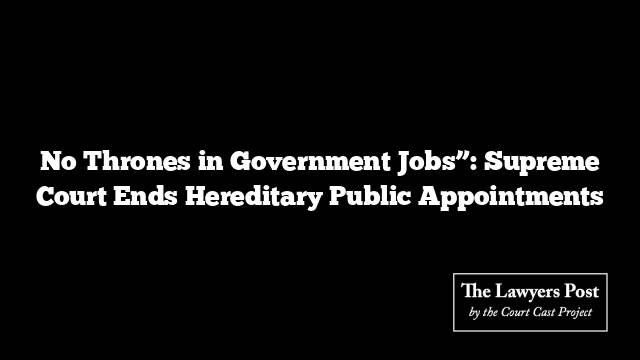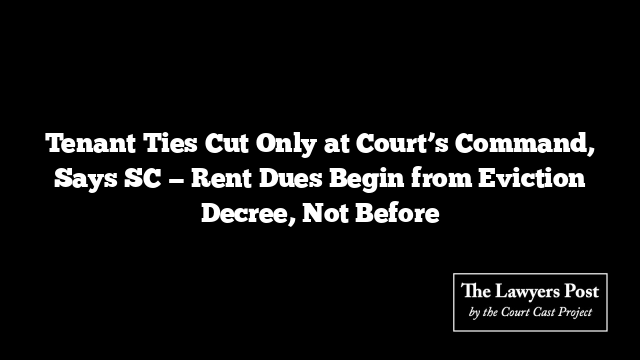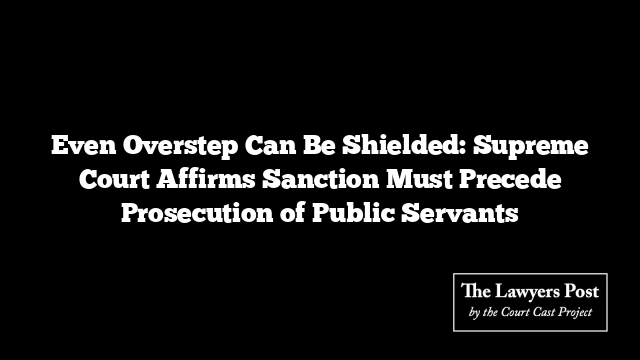In a firm rebuke to legacy-based hiring, the Supreme Court has made it crystal clear: public jobs aren’t family heirlooms.
Striking down a Bihar government rule that allowed retiring chowkidars to hand-pick their successors from within the family, the Court declared the practice an affront to constitutional guarantees of equality. “The Constitution of India shuns appointment in public service by succession,” the bench observed. “Employment should not flow as if it were heritable.”
The bench, led by Justices Dipankar Datta and Manmohan, backed the Patna High Court’s earlier decision which struck down the contentious clause in the Bihar Chaukidari Cadre (Amendment) Rules, 2014. That clause, nestled innocuously in the fine print of Rule 5(7)(a), gave retiring chowkidars the power to nominate a dependent to inherit their post.
Not anymore.
The ruling sends a loud message: Government posts must be earned, not inherited. The idea of jobs passing down like family furniture was termed by the Court as a “backdoor entry”—and one that punches a hole through Articles 14 and 16, the constitutional pillars that ensure equality before the law and equal opportunity in public employment.
Bihar’s Dafadar Chaukidar Panchayat (Magadh Division) had challenged the High Court’s verdict, hoping the top court might side with their tradition. Instead, the Supreme Court delivered a sweeping rejection—invoking landmark precedents including Manjit vs. Union of India, Chief Personnel Officer v. A. Nishanth George, and even the 1961 Constitution Bench decision in Gazula Dasaratha Rama Rao. In each of these, hereditary or “priority” appointments were thrown out for flouting meritocracy.
The ruling also nodded to a 2016 Punjab & Haryana High Court judgment that dismantled a similar railway hiring practice, calling it an engineered bypass of fairness and transparency.
The Supreme Court reiterated a blueprint for how public hiring should work: open advertisement, eligibility screening, unbiased and transparent selection, merit-based ranking, and adherence to reservation policies. Compassionate appointments and dying-in-harness schemes still stand as exceptions—but hereditary succession? Not a chance.
The Court wrapped up the case with a subtle but stinging observation: nearly eight decades after independence, India still struggles to generate enough public jobs for deserving candidates. The answer, it seems, lies in fairness—not favoritism.





